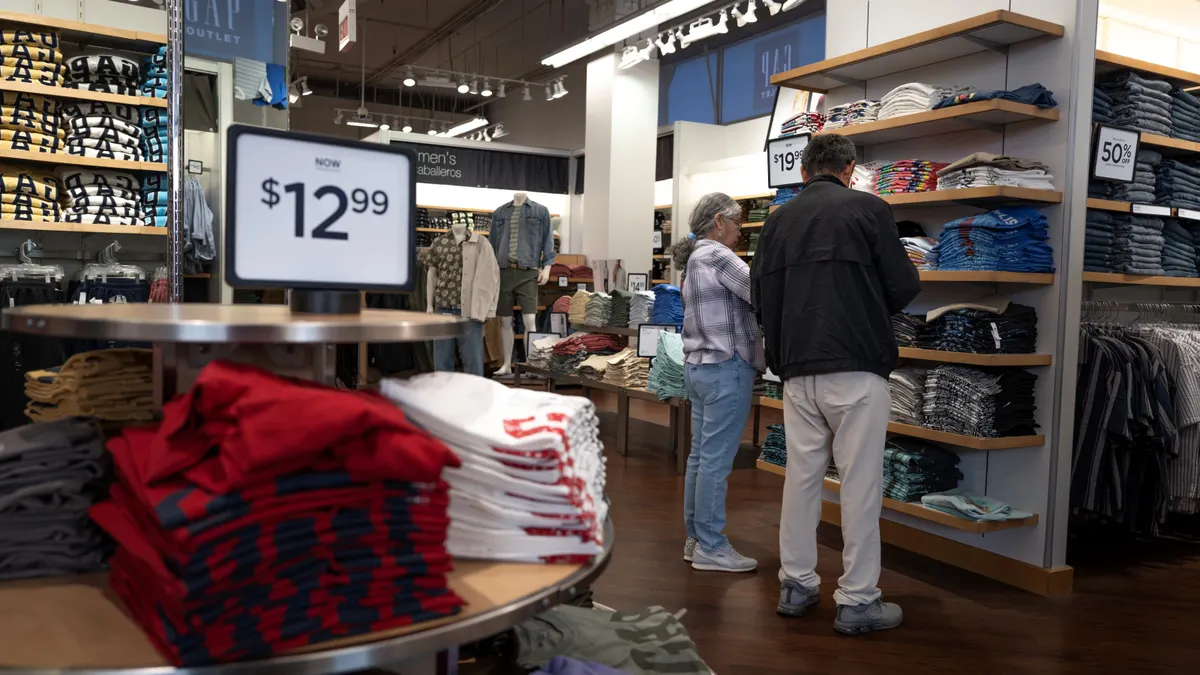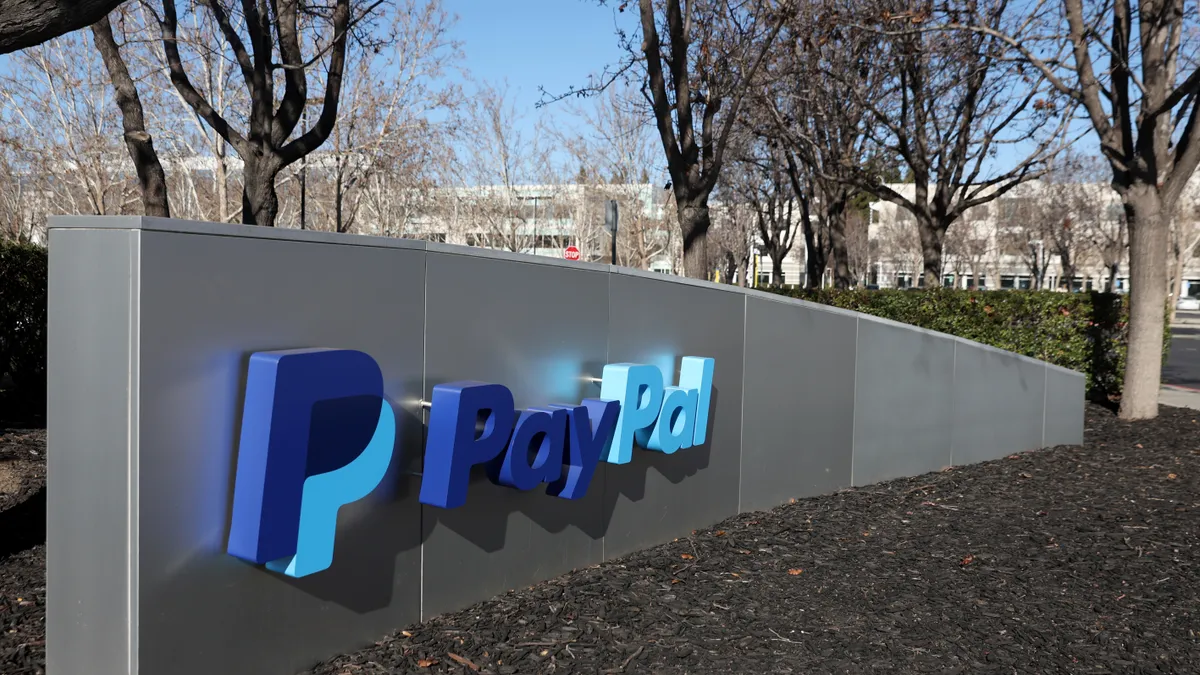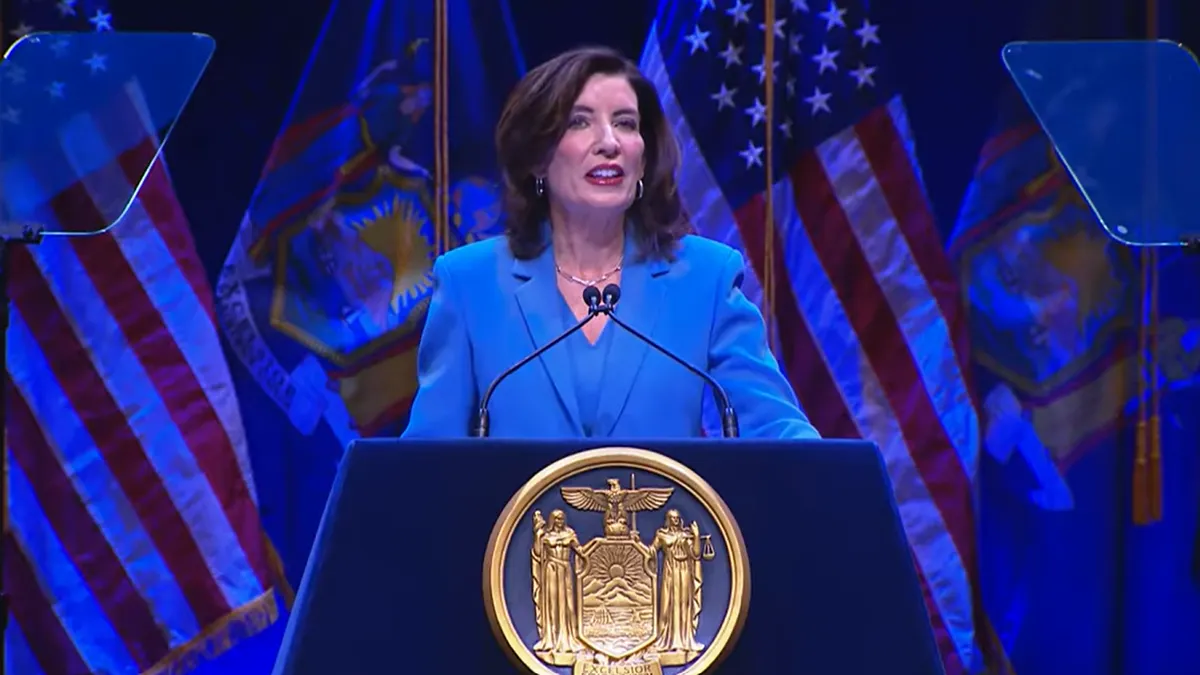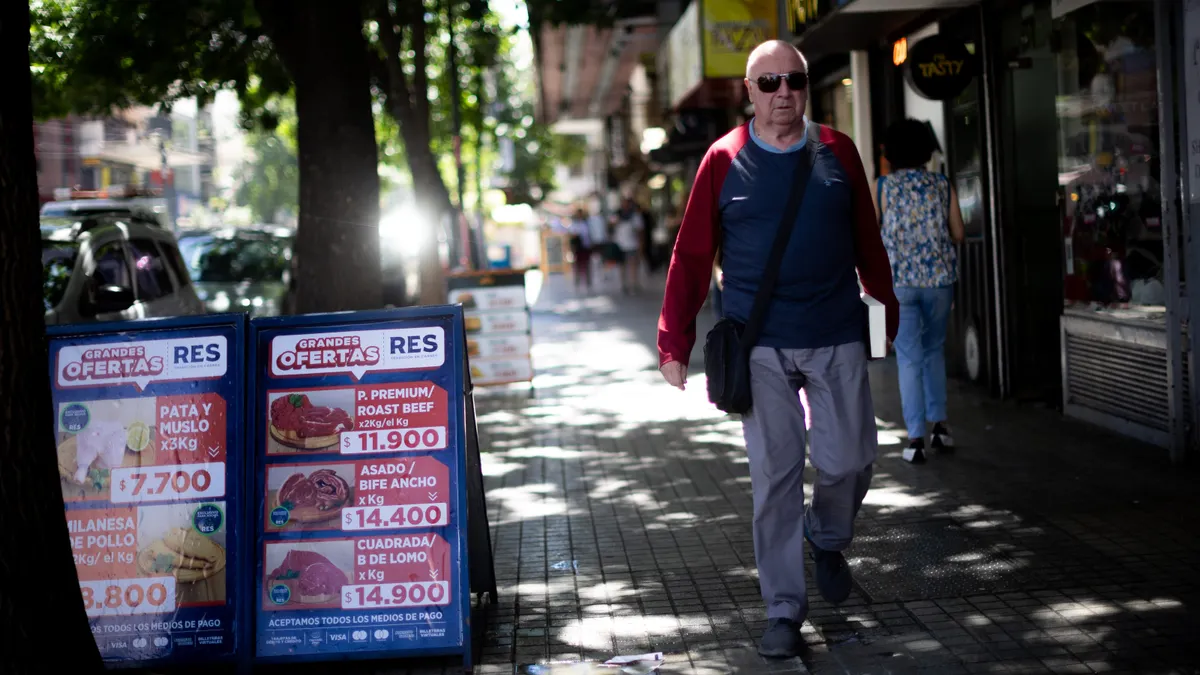A federal judge has postponed an antitrust trial for several national retailers suing Visa and Mastercard over card swipe fees to next year, prompted by concerns that the prior October trial date would spill into the holiday season.
Last week, U.S. District Judge Alvin Hellerstein moved the previously scheduled Oct. 20 jury trial for several large merchants to April 20, 2026, after he raised a question during a recent pretrial status conference about how long the trial might last, potentially conflicting with the holidays.
In subsequent court filings, lawyers for the merchants asserted that Visa and Mastercard had seized on the judge’s question as the basis of their effort to push the trial into 2026.
Merchants suing the networks — about four dozen companies assembled into three groups of litigants — strongly opposed moving the first of what’s expected to be two trials into next year. Hellerstein’s order came the same week as a federal district judge in Chicago rescheduled a separate trial from May to September 2026 for a different group of merchants suing the networks.
The trials next year cover three groups of plaintiffs that have been litigating against Visa and Mastercard for more than a decade and opted out of a prior multi-billion dollar settlement with the networks over damages.
One group includes merchants such as Marathon Petroleum, apparel retailer Gap and restaurant company Panera Bread, with several of the plaintiffs’ original complaints filed 20 years ago. A second group covers nine merchants, including retailers Macy’s and TJX, the parent of TJ Maxx. While those two groups’ cases are pending in Hellerstein’s New York courtroom, a third case involves the plaintiffs’ group, led by the food delivery business Grubhub, that is pending in Chicago federal court.
Last year, Hellerstein decided that the trial in his court will involve five plaintiff companies from the two merchant groups assigned to his court. Four card-issuing banks are also defendants in the New York trial.
About 30 merchants in the three plaintiff groups have reached independent settlements, including tech giant Amazon, as well as the retailers Costco Wholesale and Lowe’s. Fashion retailer The Talbots was the most recent to settle, in June.
The long-running antitrust cases date to 2005 when merchants sued Visa and Mastercard over alleged violations with respect to setting the interchange rates that retailers, restaurateurs and other merchants pay when consumers use a Visa or Mastercard-branded card.
The networks “just want to delay everything,” Lloyd Constantine, a New York attorney who represents about 40 merchants suing Visa and Mastercard, said in a June 18 interview before the new trial date was set. “The delay of six months in a case that has been in court for 13 years was opposed by my firm,” he wrote Thursday in an email.
Visa has no comment on the litigation, a spokesperson said Friday.
A Mastercard spokesperson, Seth Eisen, said the company remains “focused on resolving” the swipe fee litigation. “It reflects our commitment to competing and innovating in this dynamic market by delivering value to everyone who pays or is paid using our products,” Eisen wrote Thursday in an email.
The jury trial in New York next spring is expected to be the first to further litigate merchants’ claims over their costs for card payments since a federal judge nixed a settlement with the networks over injunctive relief for retailers.
Last June, U.S. District Judge Margot Brodie in Brooklyn, New York, rejected a separate March 2024 settlement covering injunctive relief, concluding that it treated large and smaller companies inequitably, and disadvantaged the biggest merchants. Talks on a revised settlement are ongoing.
Will they settle?
Amid the litigation, “serious” settlement talks between the merchants and networks continue, Constantine said. The potential magnitude of “extravagantly outrageous” awards if the merchants win at trial — tripled under U.S. antitrust law — seemingly make Visa and Mastercard “highly motivated to settle,” he said.
“If past is prologue, if history tells us something, settlements are highly likely,” Constantine said. “Not inevitable. Not certain. But highly likely.”
In the separate Chicago federal courtcase, Visa and Mastercard are “preparing renewed settlement offers to the entire Grubhub plaintiff group,” lawyers for Visa told U.S. District Judge Edmond Chang in a June 19 filing asking him to move the Grubhub plaintiffs’ trial from May to later in the year. The networks are committed “to engaging in serious, good faith negotiations with each of them” before the trial in New York, they added.
A spokesperson for Arnold & Porter, which represents the San Francisco-based Visa, said the firm could not comment on active litigation. A spokesperson for Vorys, Sater, Seymour and Pease, which represents Grubhub merchants, said the firm had no comment on the matter.
“A settlement can occur at any point before, during or even after the trial,” Visa CEO Ryan McInerney told investors in a conference call last July, discussing the agreement that Brodie rejected. “So, just keep that in mind as the process plays out.”
The networks “are willing to pay an awful lot of money to get rid of these cases,” Constantine said. “But not anywhere near — not even close — to what they would have to pay were they to lose at trial.”
Jeffrey Shinder, another lawyer who represents merchants, is skeptical of a pre-trial agreement. “In terms of an overarching settlement of all of these clients, I see nothing that has happened that suggests to me that that is imminent or likely,” Shinder said in a June 20 interview.
Merchants seek change
Beyond recouping years of card swipe fees they’ve paid Visa and Mastercard, the merchants are seeking fundamental revisions in how the two dominant payment networks set interchange fees.
“There’s a perspective amongst the merchants that this is a once-in-a-generation moment to address a serious market failure that has harmed the merchants for decades,” Shinder said.
They’re hoping to eliminate a system in which the banks and networks apply default interchange rates to millions of merchants, replacing that with negotiated rates. Currently, only a very small percentage of merchants, those that are larger, have bilateral interchange rate agreements with Visa and Mastercard, according to plaintiffs’ court filings.
The lawsuit also seeks to banish a longstanding rule known as “honor all cards,” in which a merchant that accepts any Visa or Mastercard-branded card must take all such cards, regardless of the issuing bank or the interchange fee associated with the card.
That means the merchant can’t decline a card with a pricier interchange, such as the numerous higher-fee cards that offer consumers travel or hotel loyalty program rewards. Nor can they usually add surcharges for payments with a card that carries a higher interchange cost.
Travel rewards programs funded by higher interchange fees are borne by “the merchants and their consumers who are paying with plain-vanilla cards or cash or SNAP (grocery benefit) cards,” Constantine said. “It’s coming out of the hide of people on food stamps. It is disgusting and that is the world that Visa and Mastercard want to preserve.”
These types of changes form the basis of the permanent injunctive relief that merchants are seeking through the trial or lawsuit settlements, he said. “If the case goes to trial, it’s not going to be because the parties can’t reach an agreement on money,” Constantine said. “It’s much more likely to be disagreement over the injunctive relief.”
Distracted jurors
Had the trial begun Oct. 20, jurors would be “impacted by holiday distractions and juror concerns about being unable to participate in holiday preparations, plans, and family gatherings,” lawyers for Visa, Mastercard and and several large bank defendants wrote in a June 16 brief asking Hellerstein to reschedule.
In a letter four days later, lawyers for several retailers including Macy’s and TJ Maxx, urged Hellerstein to retain the October trial date.
The networks intend “to seize every possible opportunity to avoid any timely trial of these Plaintiffs’ claims,” attorneys with Gibbs & Bruns wrote. “Moreover, while Plaintiffs wait for their day in court, Defendants’ anticompetitive conduct continues to inflict overcharge damages on all Plaintiffs, each and every day.”






















